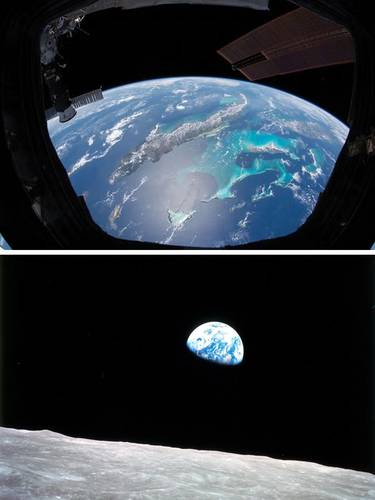When will the end of humanity be? Whether it’s a nuclear holocaust, crossing a critical climate threshold, at the hands of artificially intelligent robots, or the Don’t Look Up asteroid, the issue encompasses our thoughts, our research, and our Facebook rants.
Now, one theorist warns that human civilization of 8.2 billion people is at a critical crossroads: teetering between what he predicts will be authoritarian collapse and glut.
“Industrial civilization faces an ‘inevitable’ decline as it is replaced by what could prove to be a much more advanced ‘post-materialist’ one based on abundantly distributed clean energy. The main challenge is that the former faces a decline so rapid that it could derail the emergence of a new and superior ‘life cycle’ for the human species,” said Dr. Nafeez Ahmed, a best-selling author and journalist who is distinguished member of the Schumacher Institute for Sustainable Systems, based in the United Kingdom.
Ahmed, who has spoken at United Nations summits in recent years, is the author of the article recently published in the magazine Foresight.
Gaya Herrington, a sustainability and dynamic systems analysis researcher at consulting firm KPMG, who was not involved in the research, told The Independent Which agrees with all of Ahmed’s great points.
We live in a historical moment of now or never, and what we do in the next five years will determine our levels of well-being for the rest of this century
he stated.
Based on scientific literature, the study offers a theory of the rise and fall of civilizations, from which it concludes that humanity is about to take the next step. giant leap
in evolution, if authoritarianism does not slow down progress.
Life cycle
The research concludes that civilizations evolve through a four-stage life cycle: growth, stability, decline and final transformation. According to him, today’s industrial civilization is in decline.
Ahmed warns that the rise of authoritarian politics and efforts to protect the fossil fuel industry, which produces the greenhouse gas emissions that contribute to climate change, are factors that could endanger civilization. The overall decline in energy returns on investments is central to the decline.
Investing in carefully designed clean energy and new material capabilities such as that industry, artificial intelligence, 3D printing and lab-grown agriculture could create new forms of networked superabundance – when there is an abundance of resources available through networks. that protect terrestrial systems. But they cannot be governed by the old centralized industrial hierarchies, says Ahmed.
Ultimately, it confirms a growing gap between the so-called new emerging system and the industrial operating system
leading to political and cultural upheavals and global crises.
An amazing new space of possibilities is emerging, in which humanity could provide itself with superabundant energy, transportation, food and knowledge without harming the Earth. This could be the next great leap in human evolution. But if we are not able to evolve as human beings and modify the way we govern these emerging capabilities responsibly and for the benefit of all, they could be our undoing.
he warned. Instead of evolving, we would regress, if not sink. The rise of authoritarian and far-right governments around the world increases this serious risk of collapse
.
In his new book A Darwinian Survival Guide (Darwinian survival guide), University of Toronto professor Daniel Brooks says that although the danger is great and time is short, humans can make change happen.
Behavior change
His point of view, as declared to The Independentis that although utopia is unattainable, the apocalypse will not occur even if there is a great collapse of technological humanity. Believe that the world has a problem without technological solution
and that if a debacle occurs around 2050, the people who continued acting as before They will all be guilty, regardless of politics, economics or beliefs, and those who manage to be part of the survivors and the rebuilders will share the credit
.
We agree with those who say that we now have enough technology to solve the problems and, while technological progress is useful, the accelerating pace of global climate change is outpacing technological progress. The solution to keeping humanity connected with technology lies in changing our behavior
Brooks wrote.
Ahmed published his article following dire warnings about the Earth’s rapid warming in the future. Last year, a team of international scientists claimed that six of the nine planetary boundaries, which define a safe operating space for humanity, had been breached.
This update on planetary boundaries clearly shows a patient who is not well, as the pressure on the planet increases and these are being crossed. We do not know how long we will be able to continue violating them before the combined pressures cause irreversible changes and damage.
said Johan Rockström, co-author of the study.
Research published earlier this year concluded that it is crucial to maintain at least net-zero greenhouse gas emissions, a level that can be absorbed by nature and other carbon dioxide removal methods, by 2100 to minimize the risk of climate tipping points and ensure planetary stability.
Multiple wars, extreme inequality, imminent climate collapse and new technologies capable of transforming our very existence have brought humanity to a crossroads.
said in September the secretary general of Amnesty International, Agnès Callamard. We have no time left for complacency or defeatism, only for the shared responsibility to save the world that we owe to future generations.
.
We will have to wait and see if there is any other Hollywood-style research that predicts the end of the world from artificial intelligence systems.
